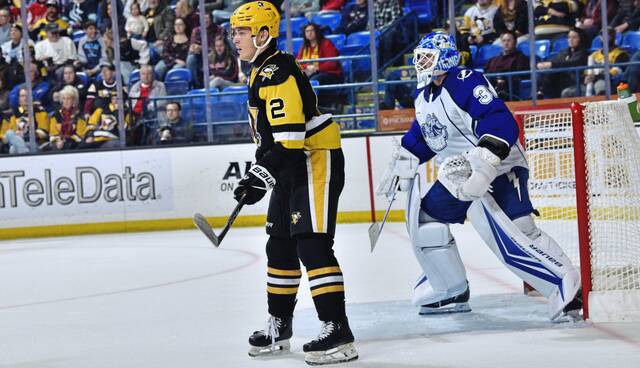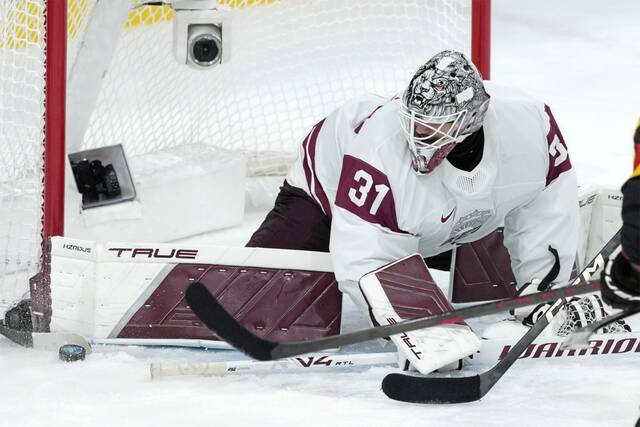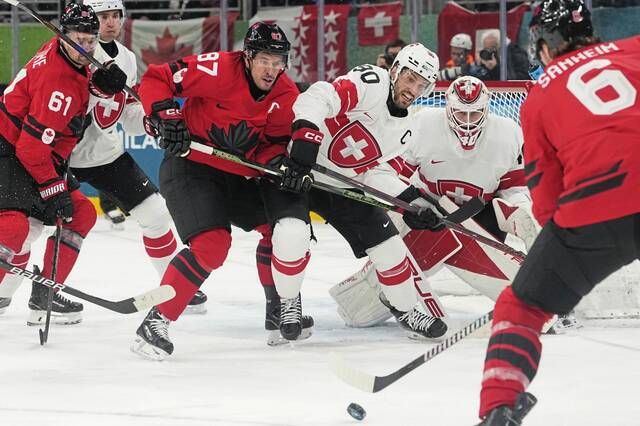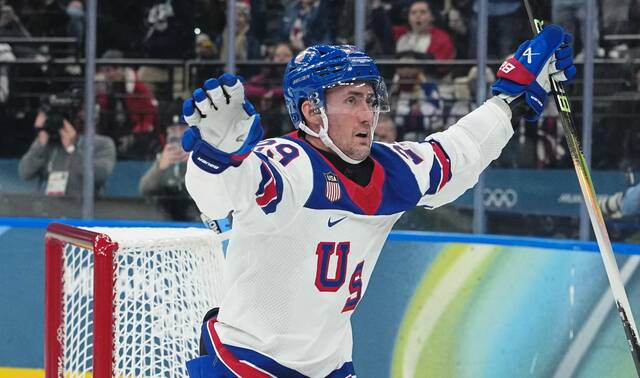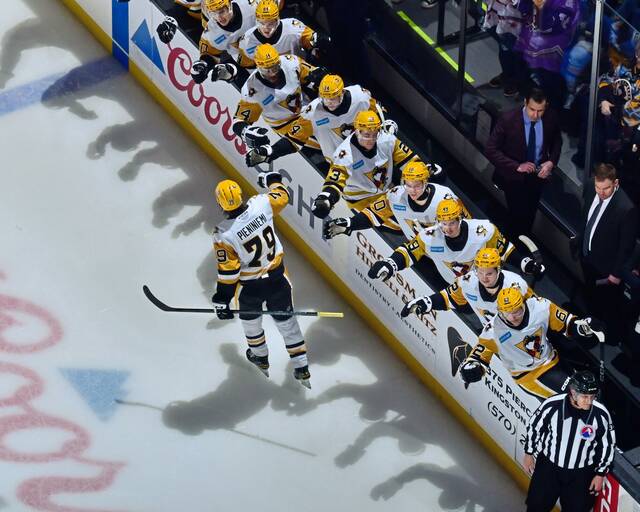Ahead of the 2010 NHL Entry Draft, the prospects website Hockey’s Future described then-18-year-old forward Bryan Rust as follows:
“Rust plays a high-motor game that allows him to be effective in many different assignments all over the ice.”
As far as being “effective in many different assignments all over the ice,” Rust, now 30 and in his ninth season with the Penguins, has lived up to that projection since being selected in the third round.
For the majority of his NHL career, he has served as a top-six forward, regularly skating with Sidney Crosby and Evgeni Malkin.
Rust has been featured on the power play for several years, logging a career-high 206 minutes, 25 seconds on the man-advantage last season, per Natural Stat Trick, in addition to setting career bests in power-play goals (nine) and assists (12).
What makes Rust unique is he also is utilized as a penalty-killer, something he specialized in dating to his collegiate career at Notre Dame and earlier.
As Rust put it: “I’ve penalty-killed for as long as I can remember.”
Of the Penguins’ current top-six forwards — Crosby, Malkin, Rickard Rakell, Jake Guentzel, Jason Zucker and Rust — he is the only player routinely used on the power play and penalty kill.
This season, Rust has recorded 131 shifts on the power play compared to 120 penalty-killing shifts, per Natural Stat Trick.
Jeff Carter (102 power-play shifts, 116 penalty-kill shifts) and Kasperi Kapanen (48 power-play shifts, 39 penalty-kill shifts) are the team’s only other forwards deployed on both special teams units.
As the Penguins progress through All-Star weekend, the penalty kill remains one of the more dependable facets of their overall game, ranking 11th in the NHL at 81.1%.
From a penalty killer’s perspective, reading opposing players is crucial.
Anticipating a cross-ice pass or what the opposition aims to do with the puck in the offensive zone can make all the difference in getting clears and neutralizing a given power-play try.
For Rust, having racked up plenty of time on the power play over the years, it translates to obvious advantages when he is plugged back into the penalty kill.
“On the (penalty kill), you have guys that are great at blocking shots and have great sticks,” defenseman Kris Letang said. “But when you have a guy that plays also on the power play, he kind of knows what the play can be. He knows what to read. He knows where it’s tough to keep control when there’s pressure (and uses) his speed, his stick (and) his hockey sense.”
So far this season, Rust has played 61 minutes, 42 seconds on the penalty kill, which already is his most since 2019-20.
“He earned his way into this league by being a real good penalty-killer,” coach Mike Sullivan said of Rust. “We took him away from the penalty kill there for a period of time over the last couple years because he was on the first power play and playing in the top six.
“We were trying to manage his minutes and workload. That was why we took him off the penalty kill in the first place, but the reality is he’s one of our best penalty-killers.”
As Sullivan alluded, Rust’s presence on the penalty kill has fluctuated over the years, with a direct correlation to how he’s factored in on the power play.
Over his first three seasons in the NHL — 2016-17 was his first full season with the Penguins — Rust was used sparingly on special teams.
The 2017-18 and 2018-19 campaigns saw Sullivan deploy Rust primarily on the penalty kill, with his 142 minutes, 1 second of shorthanded time for the latter year representing a career-high.
Over the last four seasons, Rust’s special teams role with the Penguins has shifted to power play first, penalty kill second.
With 20-plus goals in three straight seasons, Rust has firm credentials as a scorer.
But Rust’s numbers this season (11 goals, 19 assists) through 49 games are lower than usual, and they come after he signed a six-year, $30.75-million contract worth $5.125 million annually (per Cap Friendly) in May 2022.
Even if the goal total is down, Rust is happy to contribute in other ways, particularly on the penalty kill.
“It’s something that I do take pride in,” Rust said. “It’s something that’s been a foundation of my game — defensive responsibility — and being a guy who’s produced a little bit of offense, I can think more like those power-play guys. I think it might give me a little bit of an advantage on the (penalty kill).”



